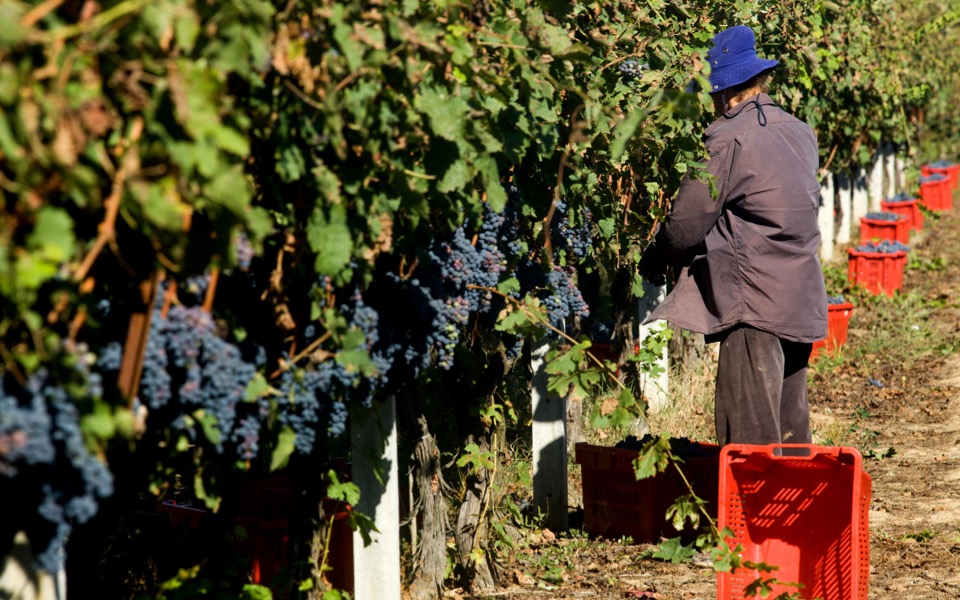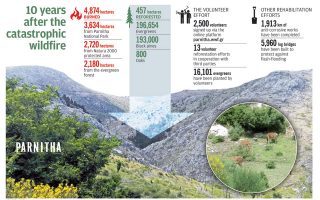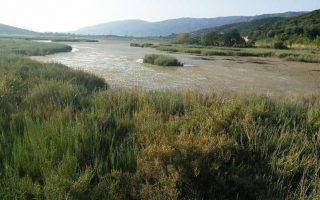Europe’s wine industry may suffer with global warming, research shows

Global warming may hit wine lovers where it hurts the most – the pocket – as rising temperatures are likely to increase labor costs in Europe's vineyards, researchers said on Thursday.
In the hills behind Cyprus's coastal city of Limassol, grape pickers work in average peak temperatures of 36 degrees Celsius (97 degrees F) in August, a month when much of the harvest is brought in.
Researchers carrying out a small-scale study found that in the heat, labor loss rose as much as 27 percent and there was a 15 percent drop in the amount of time laborers were able to work.
If temperatures rise because of global warming, labour costs are likely to follow suit, said Andreas Flouris of the School of Exercise Science at the University of Thessaly in Greece.
“I would not be surprised to see the same results being repeated in California, across southern Europe and in Australia. The environment where vines grow is more or less the same,” Flouris said, adding there is no evidence yet to confirm this for certain.
Wine is one of Cyprus's main agricultural exports and is very labor intensive with vines being tended and harvested by hand. But if vineyard owners are made aware of the problem in advance, they can offer relatively simple ways to help workers cope, Flouris told the Thomson Reuters Foundation.
Simple changes like encouraging laborers to dress in light and bright clothing which reflects the sun's radiation and does not absorb the heat as much would make a difference, said Flouris. “They tend to wear a lot more (clothing) than they should,” he said.
Other solutions include offering cold drinks and breaking up their shifts so they can rest when temperatures reach their peak each day. “The idea is to have some low-cost solutions that … will have a major impact on the productivity of these workers,” said Flouris.
In the study, published in the Temperature journal and the first of its kind in Europe the researchers say, Flouris and others followed workers at four separate vineyards.
In some cases the vin
eyard owners themselves were not aware of the extent of the drop in productivity – maybe because they too were affected by the heat, Flouris said.
Rising heat is also affecting the taste of wine in some areas.
In the Greek island of Crete, one winegrower said increasingly erratic rainfall and higher temperatures are hurting the quality of grapes on her family's estate.
Rainfall now usually lands in very short bursts in the winter, running off the soil surface so little is absorbed by the vines. And higher temperatures have shortened the growing season in some years, reducing the quality of those vintages, said Maria Tamiolaki of the Rhous winery which produces dry white, red and rose wines.
“If this continues, we might need to plant vines in higher altitudes to get later maturation and less heat, and maybe choose grape varieties that take longer to mature,” she said in a telephone interview.
Other vinegrowers in Crete who cannot plant higher up could irrigate their vines to help slow their growth, Tamiolaki said. “Most wine growers in Crete do not have irrigation systems yet so it's very difficult for them to fight very hot periods,” she said. “They need to invest in irrigation in their vines in order to fight the big heat.”
* This article is from the Thomson Reuters Foundation, the charitable arm of Thomson Reuters, that covers humanitarian news, climate change, resilience, women's rights, trafficking and property rights.





